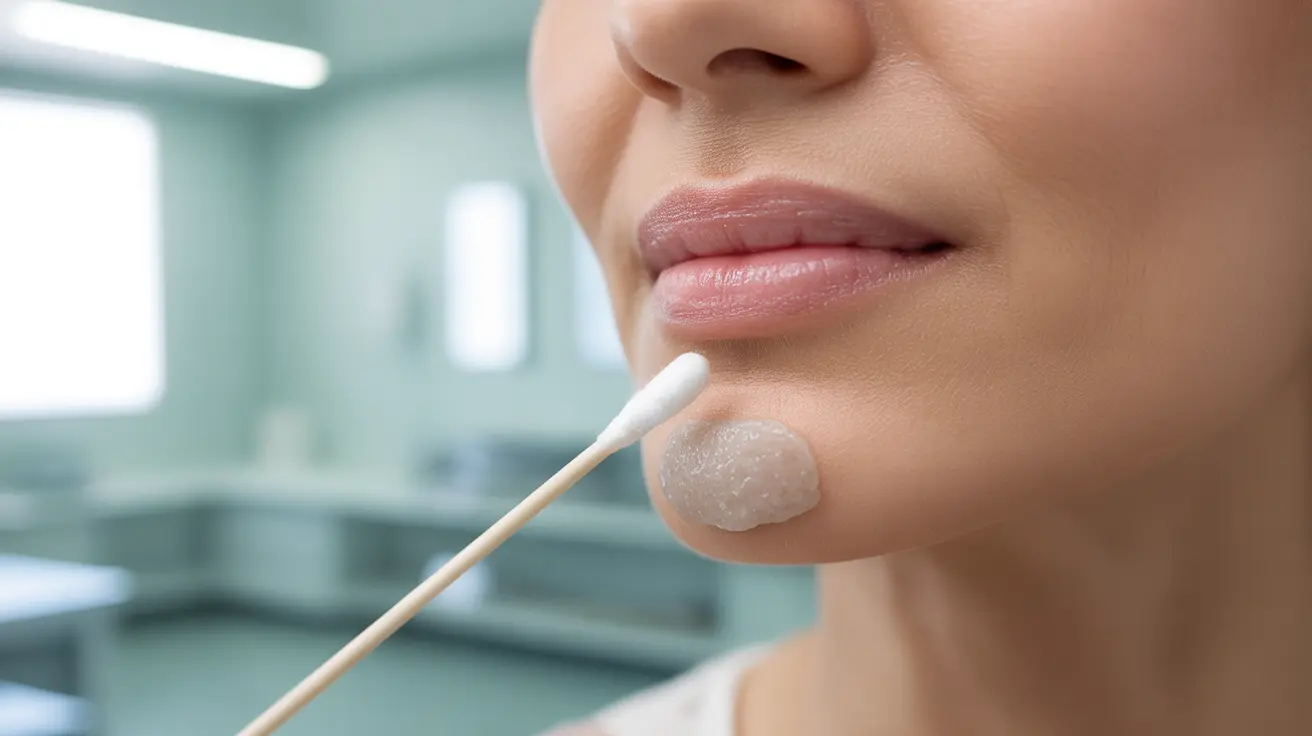When dealing with the discomfort of a cold sore, many people search for quick home remedies, and applying salt overnight has become a popular DIY treatment. While this remedy has gained attention, it's important to understand both its potential benefits and risks before trying it on your delicate lip tissue.
This comprehensive guide examines the science behind using salt on cold sores, proper application methods, and what medical research says about its effectiveness compared to proven treatments.
Understanding Cold Sores and Salt Treatment
Cold sores, also known as fever blisters, are caused by the herpes simplex virus (HSV-1). These painful blisters typically appear around the lips and go through several stages before healing. Salt's potential role in treatment stems from its natural drying and antimicrobial properties.
How Salt Might Affect Cold Sores
Salt may influence cold sore healing through several mechanisms:
- Creates an inhospitable environment for viral growth
- Draws out moisture from the blister
- May help reduce inflammation
- Contains natural antimicrobial properties
Safe Application Methods
If you choose to try salt on a cold sore, following proper application techniques is crucial to avoid further irritation:
Recommended Application Steps
For the safest possible application:
- Clean the affected area gently with warm water
- Mix a small amount of salt with a few drops of water to create a paste
- Apply very carefully to the cold sore using a clean cotton swab
- Leave on for no more than 1-2 minutes initially
- Rinse thoroughly with clean water
- Apply a lip balm with SPF to prevent drying
Potential Risks and Considerations
While salt may offer some benefits, it's important to understand the potential drawbacks:
- Risk of burning or stinging sensation
- Possible tissue irritation
- May delay healing if used incorrectly
- Can cause excessive drying and cracking
More Effective Treatment Options
Medical professionals generally recommend these proven treatments over salt:
- Antiviral medications (prescription)
- Over-the-counter cold sore treatments
- Docosanol cream
- Zinc oxide or zinc sulfate topical treatments
- L-lysine supplements
Frequently Asked Questions
Does applying salt help heal cold sores faster overnight?
While salt may help dry out a cold sore, there's no scientific evidence that it speeds up healing overnight. Antiviral medications are proven to be more effective at reducing healing time.
How do I use salt safely to relieve pain and dry out a cold sore?
If using salt, create a mild saline solution or paste, apply gently with a clean cotton swab for 1-2 minutes, then rinse thoroughly. Never leave salt on overnight, as this can cause excessive irritation.
Can salt cause irritation or delay healing when applied to a cold sore?
Yes, salt can potentially irritate the skin and delay healing if used incorrectly or too frequently. The harsh nature of salt can damage delicate lip tissue and surrounding skin.
Are there any proven treatments better than salt for cold sores?
Yes, FDA-approved antiviral medications, over-the-counter cold sore treatments, and docosanol cream are all clinically proven to be more effective than salt for treating cold sores.
Should I avoid salty foods when I have a cold sore?
While you don't need to completely avoid salty foods, it's best to be careful when eating them as salt can sting the affected area. Focus on soft, non-irritating foods until the cold sore heals.
Final Thoughts
While applying salt on cold sores overnight might seem like an appealing home remedy, it's important to approach this treatment with caution. For the most effective and safest treatment of cold sores, consider speaking with a healthcare provider about proven antiviral medications and other evidence-based treatments.




